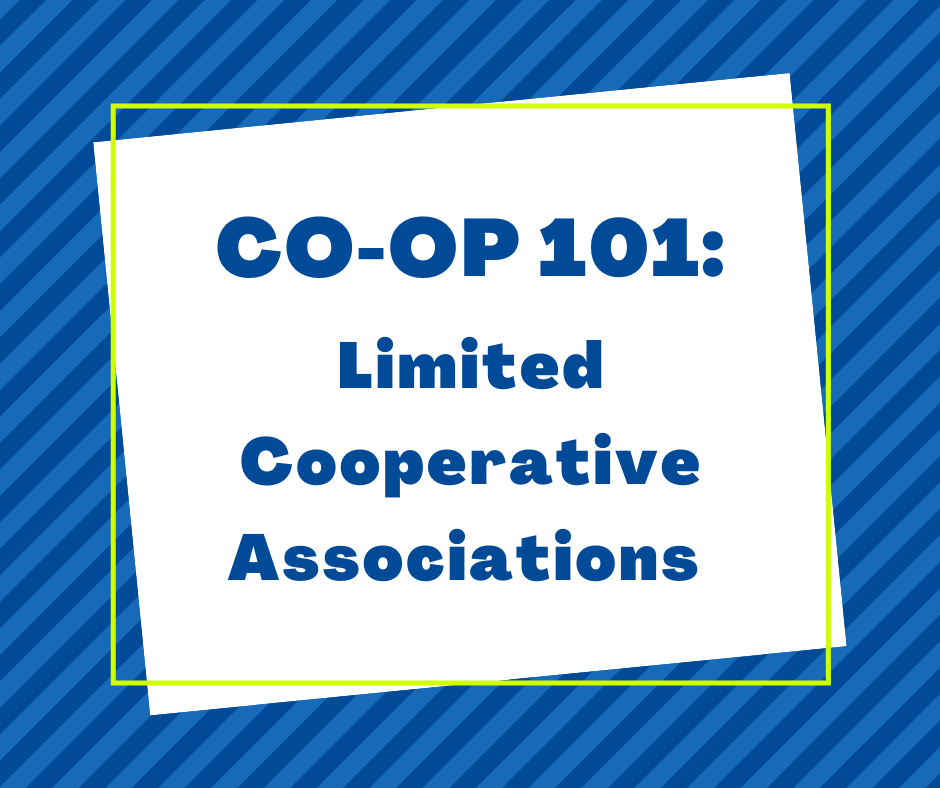In the last 20 years, several states, including Kentucky, have passed statutes that have created a new cooperative business structure, the limited cooperative association (LCA) that is a hybrid of a traditional cooperative and a limited liability company (LLCs). LCAs provide more flexibility than traditional cooperatives, especially with respect to investment. The key difference is that the LCA structure allows multiple classes of membership: patron members who use the cooperative and investor members who do not use the co-op but invest equity capital.
In a traditional cooperative, each member has one vote, but membership is restricted to patrons of the co-op. However, with LCAs, people who want to support the co-op through equity investments have voting power based on the co-op principle of one member one vote. In Kentucky, voting rights in LCAs are:
Patron members have one vote but can amend rules to base voting rights on equity or patronage.
Investor members have one vote.
Voting power for patron members cannont be less than a majority of voting power.
Any action of members requires majority of all members voting and a majority of all patron members voting.
In a traditional cooperative, only patron members can serve on the board of directors. With LCAs in Kentucky, a majority of the board must be elected by patron members, and 33-50% of the board must be comprised of patron members based upon the size of the board. Investor members are allowed to elect representatives on the board.
With traditional cooperatives, any dividends paid on stock (common and preferred) investments are restricted to no more than 8%, and profits are distributed based on the patronage of the co-op. With LCAs, profits are split between a pool for patrons that is distributed based on the use of the co-op and an investment pool based on equity investment in the co-op with no dividend restriction on the amount. The ability to earn more than 8% on equity investment and having some voting power makes it easier for LCAs to attract outside investment than traditional cooperatives.
For questions about limited cooperative associations (LCA) or assistance in developing a cooperative, give us a call at 859-550-3972 or email us at kcard@kcard.info.

